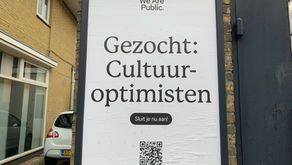Carol Competition
- Judith Weir
- Nov 20, 2014
- 2 min read
My day off from Occupation this week was spent in the basement of the BBC Maida Vale Studios, as a member of a panel judging the BBC Radio 3 Breakfast Carol Competition. I’ve been sworn to such utter secrecy about the outcome that I feel rather guilty even mentioning it at all. Rest assured that, a little closer to the festive tide, the shortlisted entries will all be revealed, sung live on air by the BBC Singers.
However, my day spent in musical pre-Christmas has reminded me how hard it is to write a new carol. On the one hand, few composers naturally tend towards extreme Yuletide jollity (see picture – and may I ask why some of these jersey-wearers are sporting such unseasonal sandals?) On the other hand, many of the most beautiful evocations of the Christmas story (such as those commissioned for many years by King’s College, Cambridge) are motets rather than carols, and beyond the capabilities of the average Christmas-time singer.
For years I’ve had one piece of advice to give to Christmas composers and lyricists, which is to get hold of a copy of the New Oxford Book of Carols. This twenty-year old collection is an astounding work of scholarship, as well as a wonderful read. Its basic message seems to be that carols were once a practically pagan expression of joy and warmth to be sung at the coldest, darkest time of the year; but gradually these simple songs were entwined with the often complex imagery of the Christian story, resulting in many strange but memorable images. Just think how skilfully that is done for instance in The Holly and The Ivy. Somehow, the ideal carol is about being warmly at peace in a place which is otherwise cold and mysterious. Carols (words and music) need to be at the junction of these two worlds.






